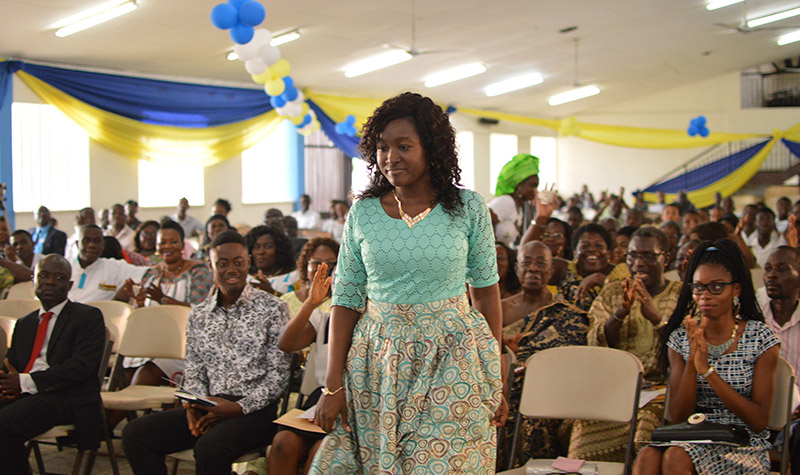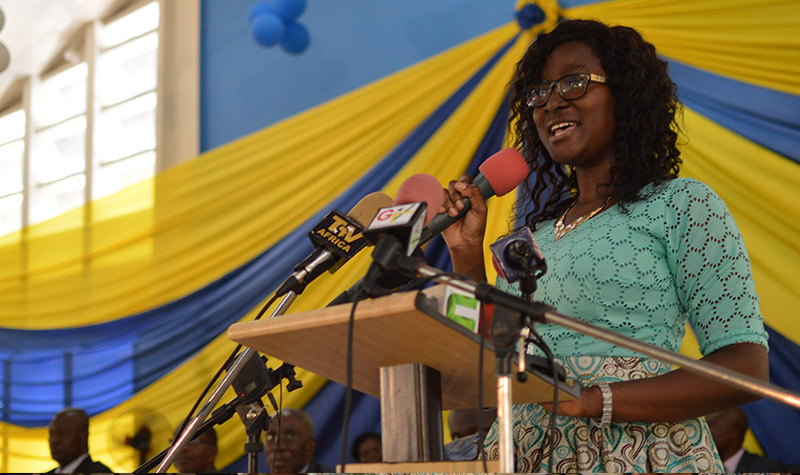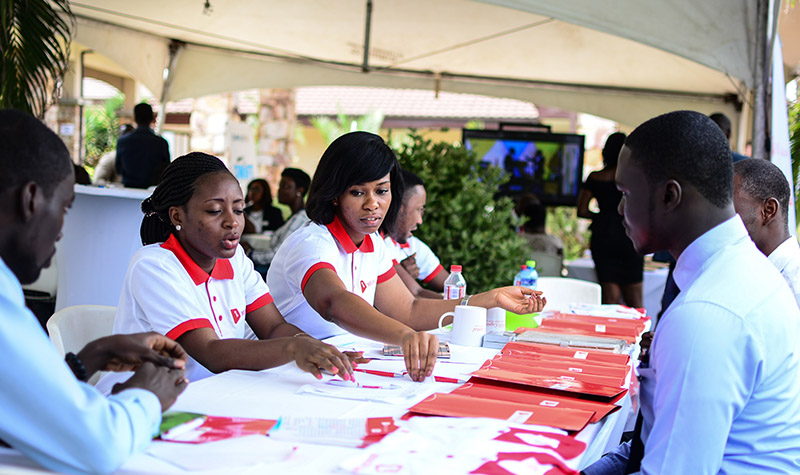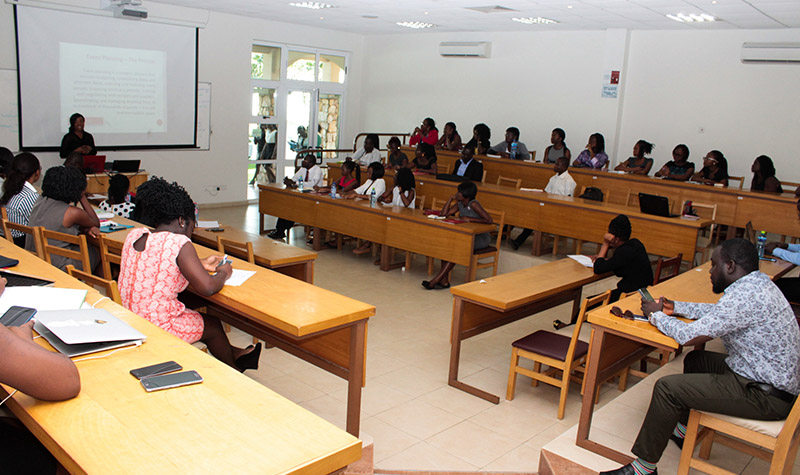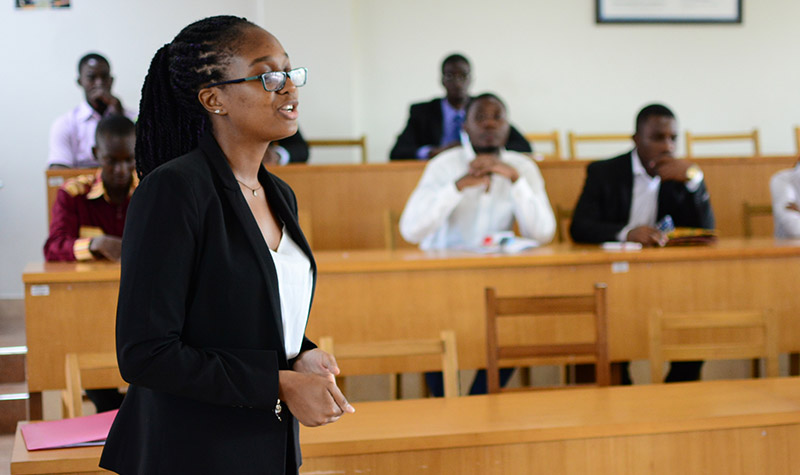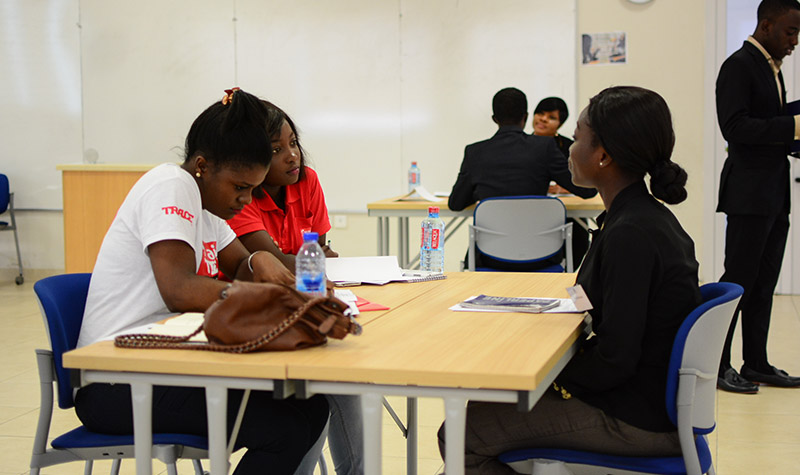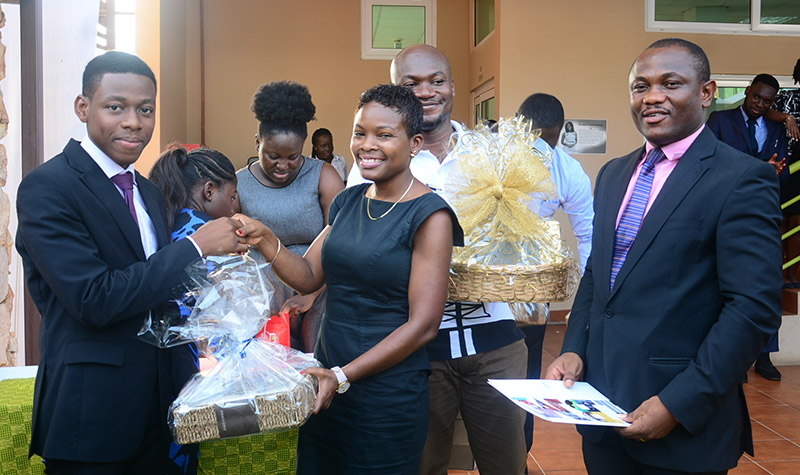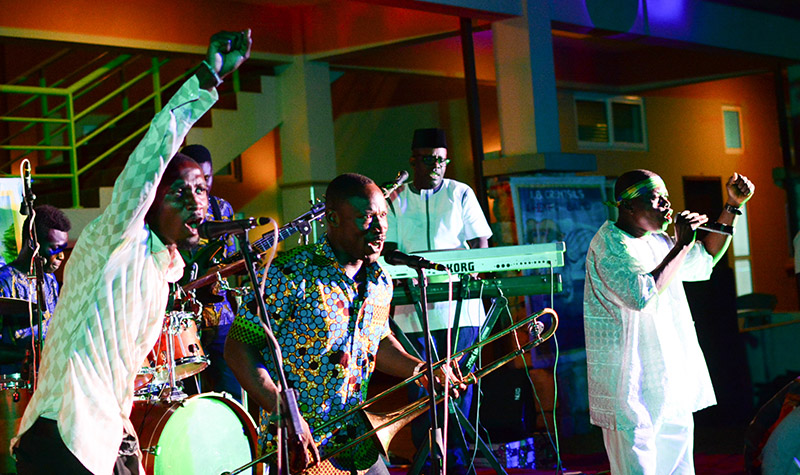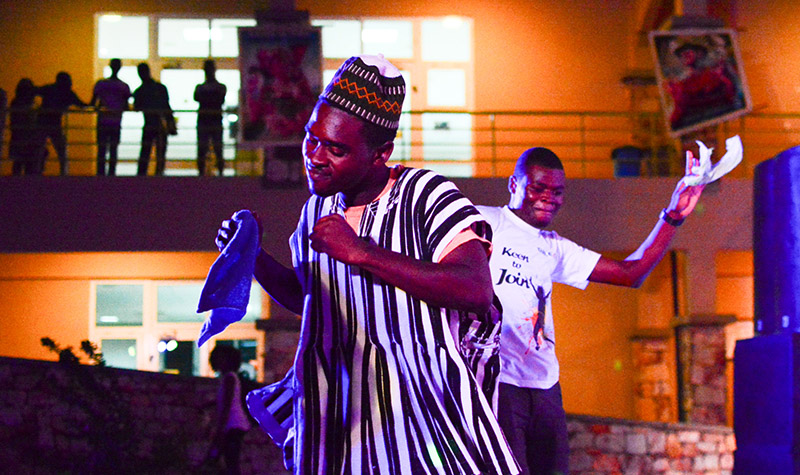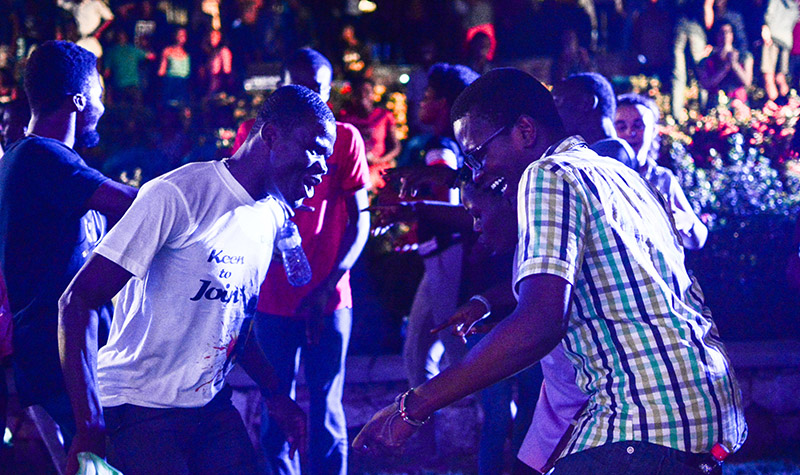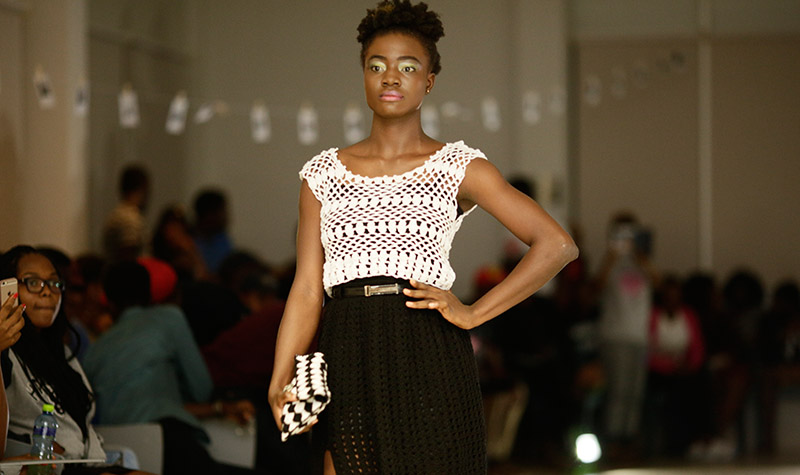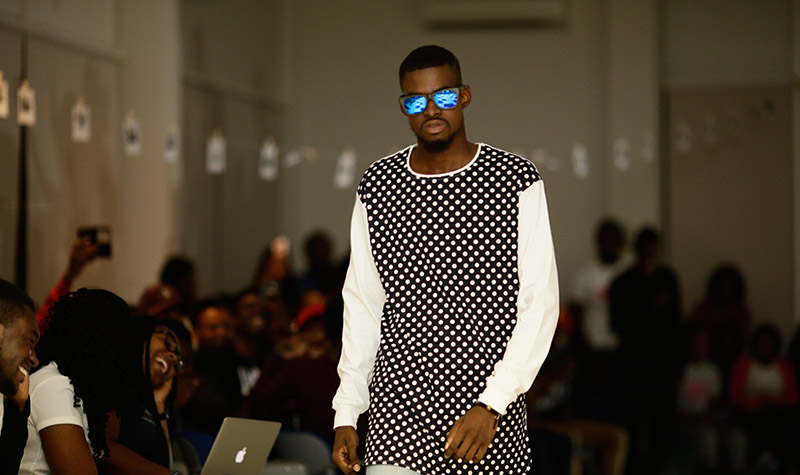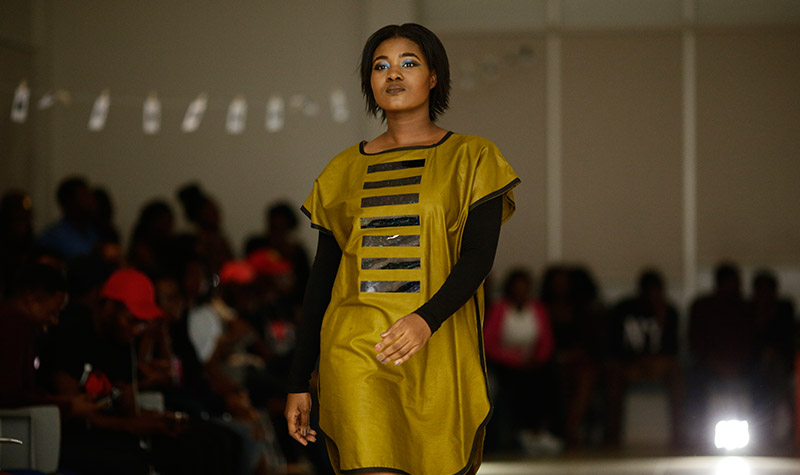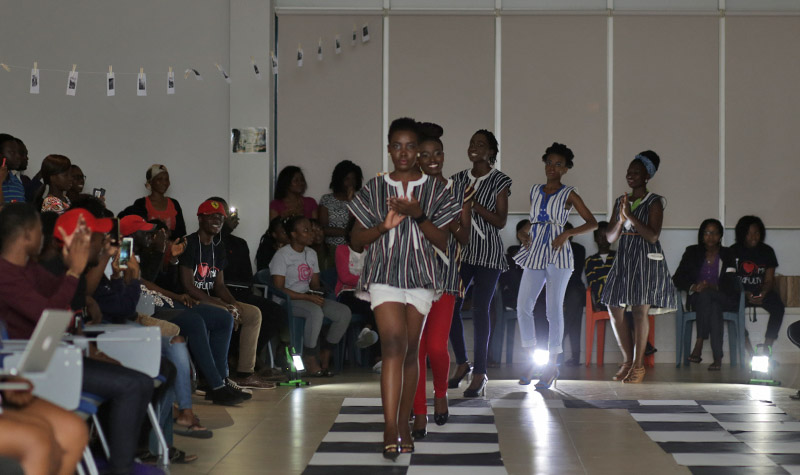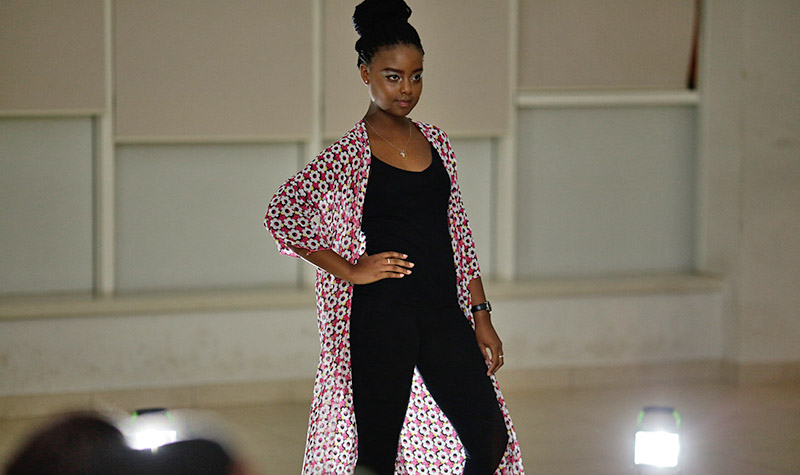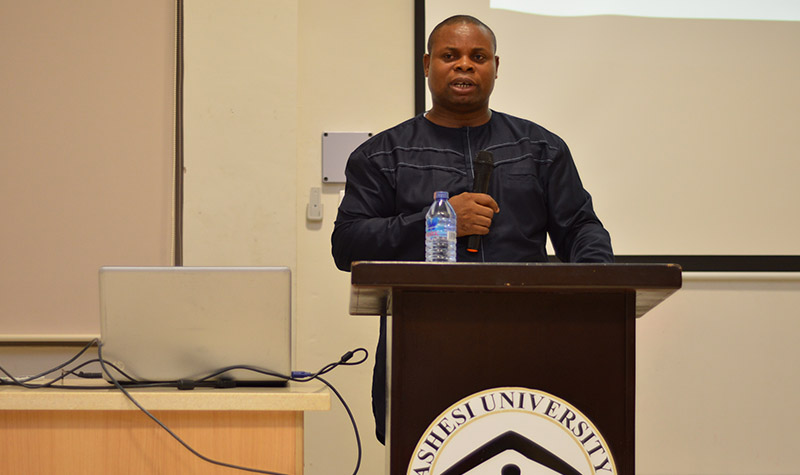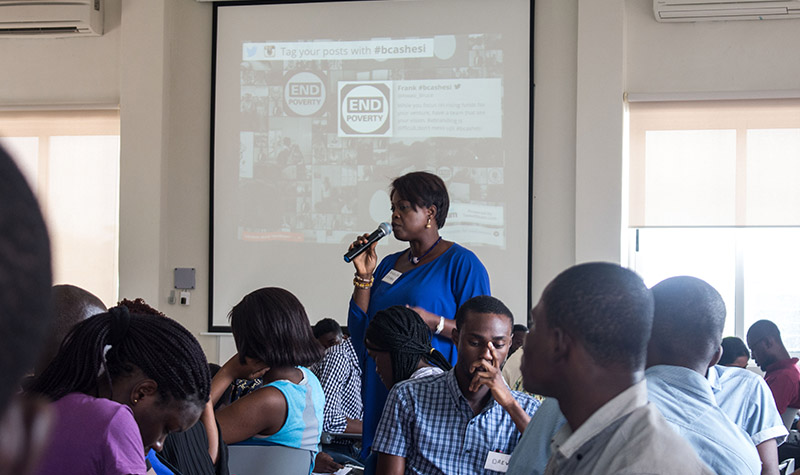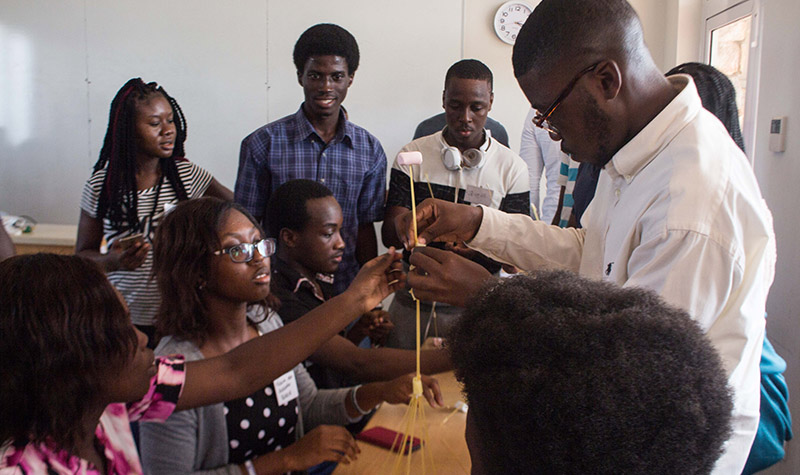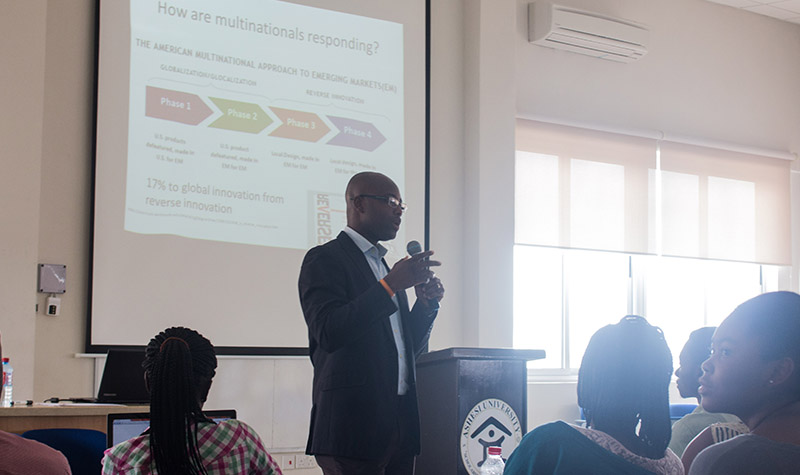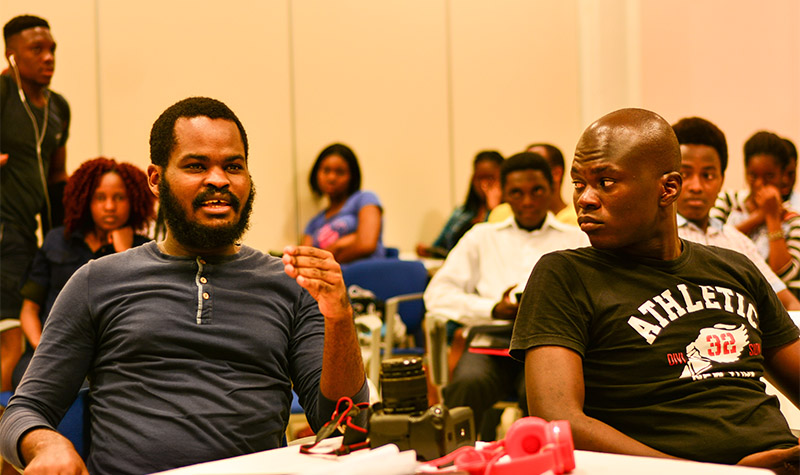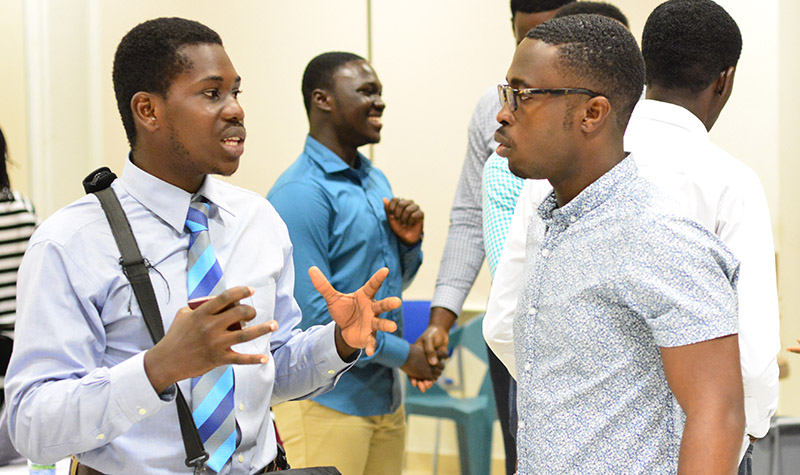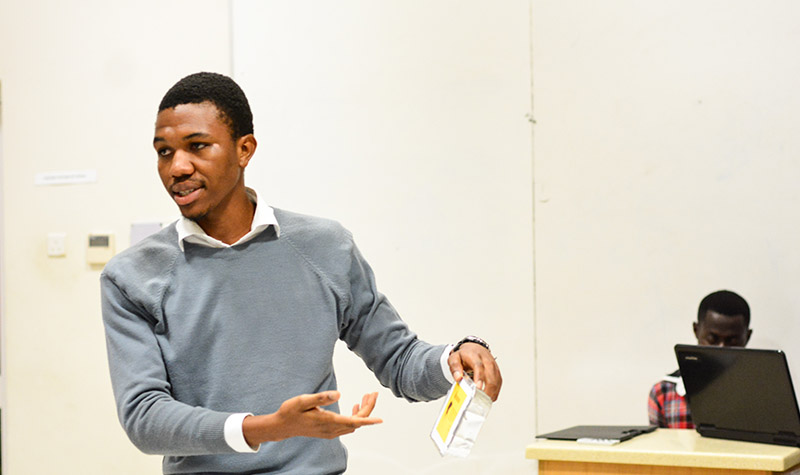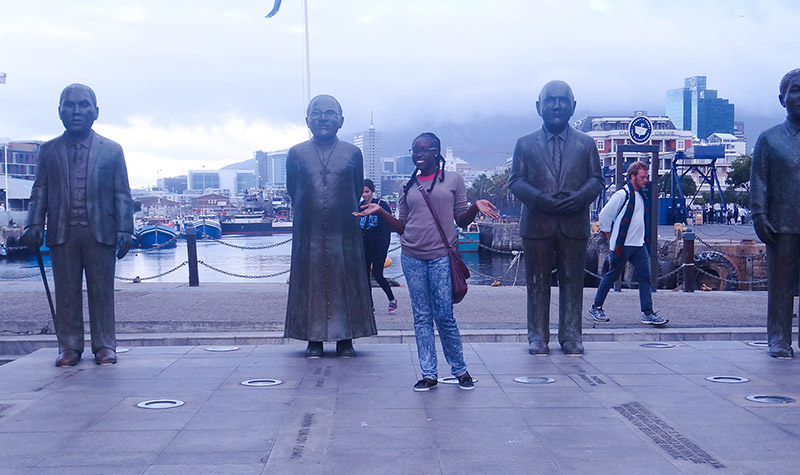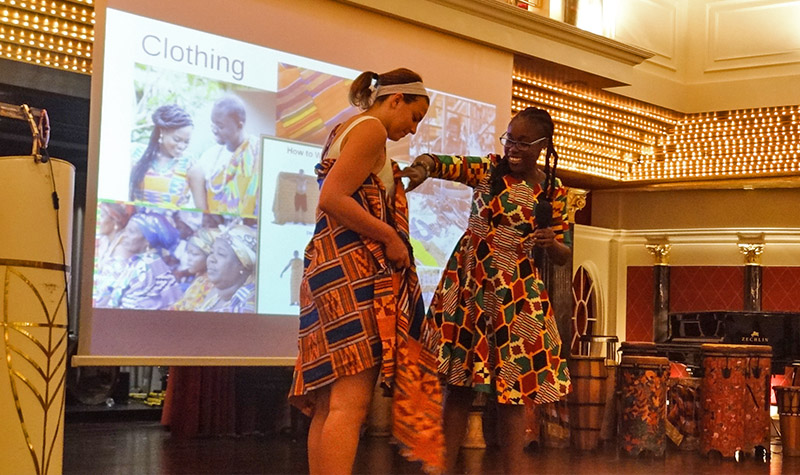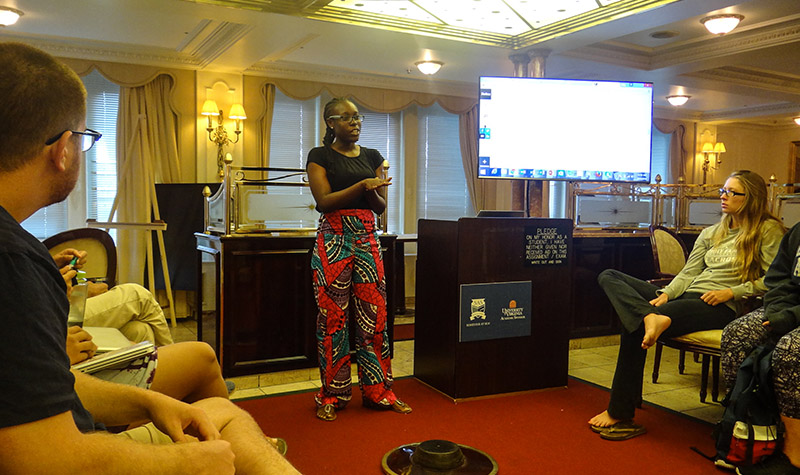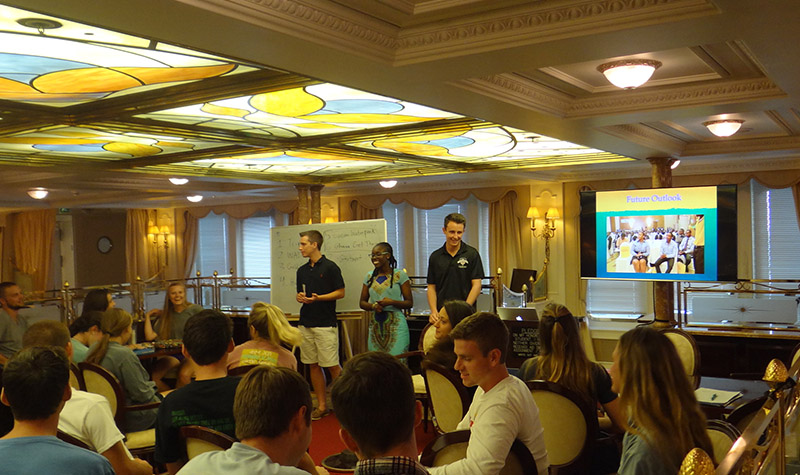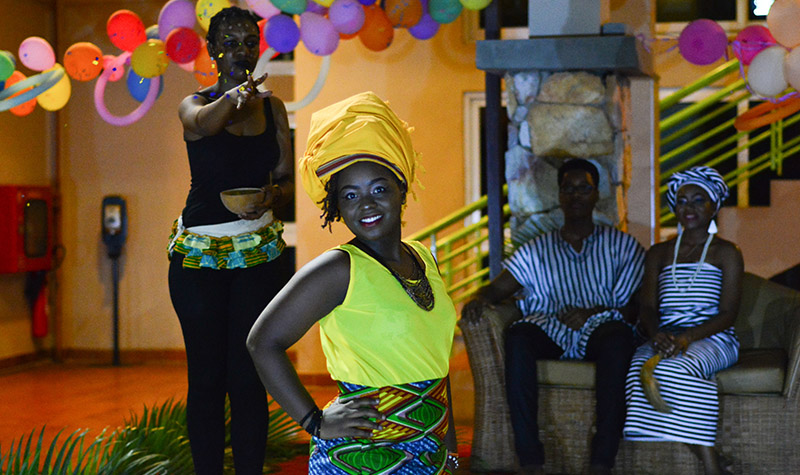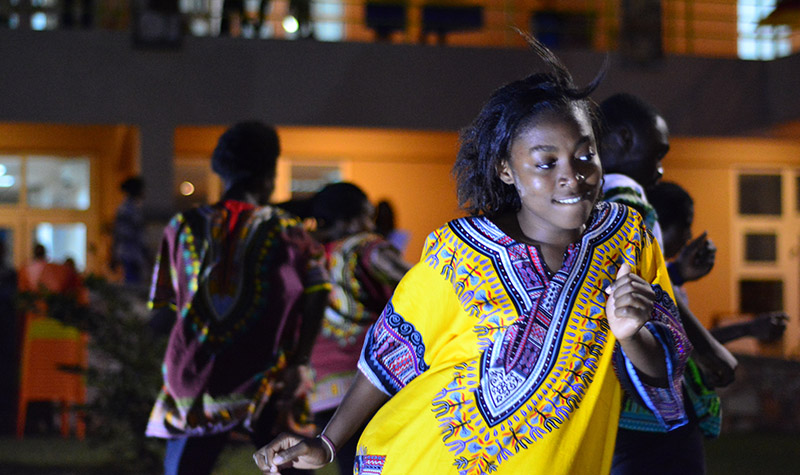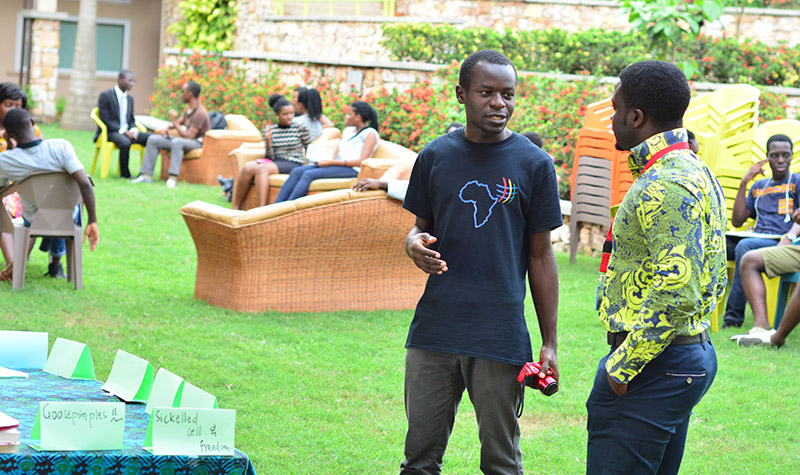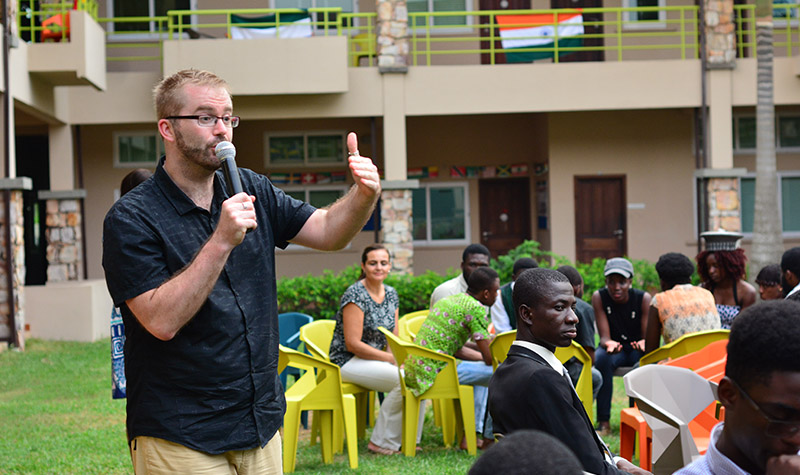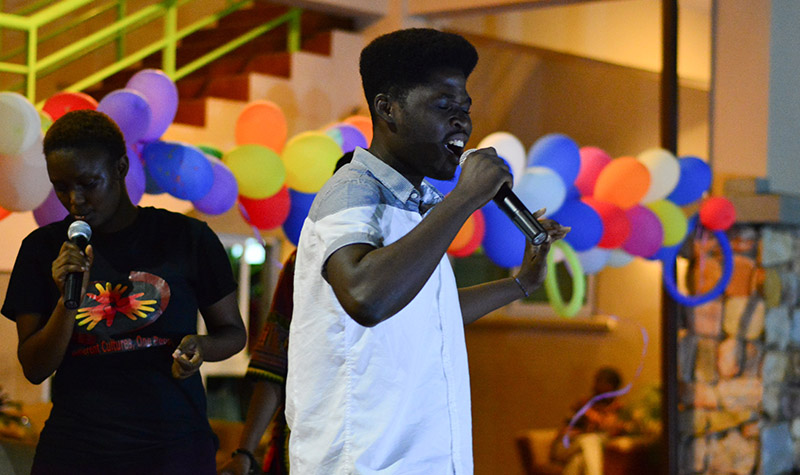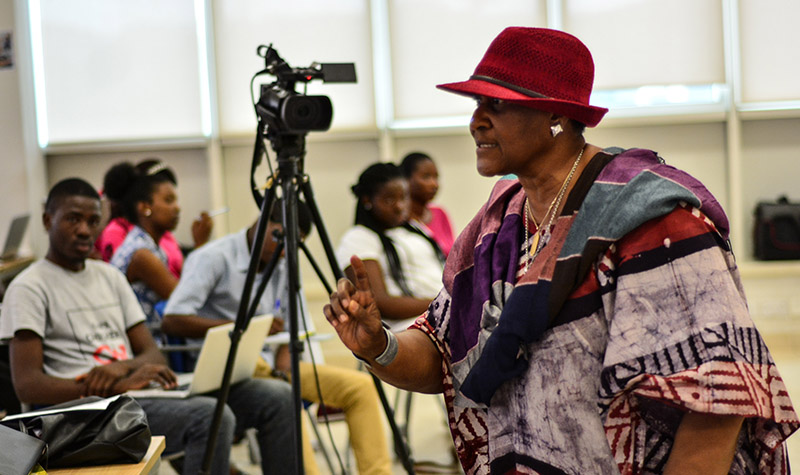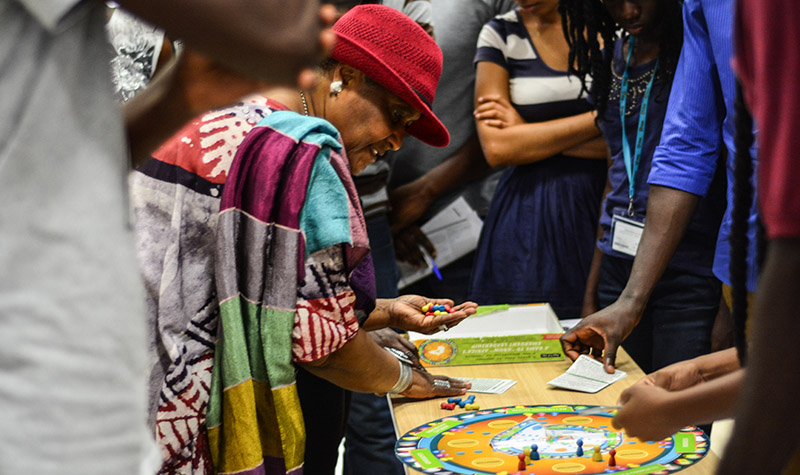It's Wednesday night, a little after 7pm, and even though it’s closed, the lights are still on at the Z-bar Restaurant and Lounge, an upscale eatery on the second floor of the World Trade Center, off the Independence Avenue, Accra. In the lounge, Viasat1’s 30minitzLive camera crew is set up, and all eyes are on Nadia Amasa'18 as she interviews local dance hall artiste Jupiter. Her bubbly nature easily fills the emptiness of the restaurant as she engages him whimsically. She’s in her world – a burgeoning icon in the local entertainment industry.
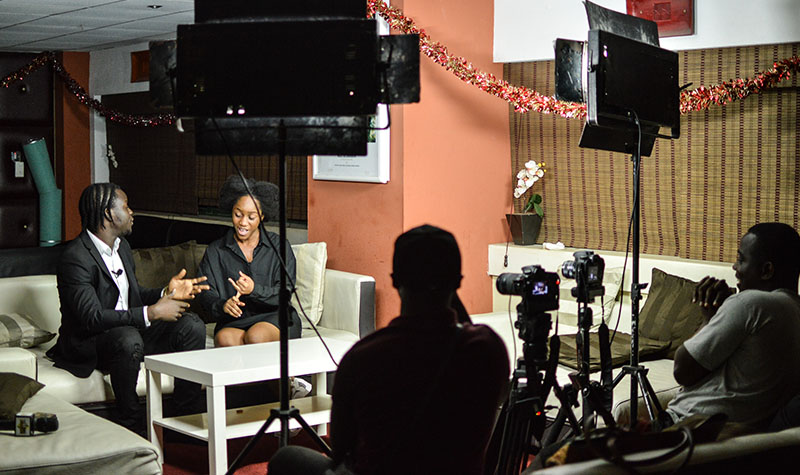
Following the shoot though, Nadia spends little time for pleasantries. After a few cursory selfies with Jupiter and Kofi Kinatah, whose song Susuka has recently topped the local charts, Nadia darts downstairs to a waiting taxi. She is headed to Berekuso to her other life. For Nadia, this has been the routine for almost two years; full time student and part time television show co-hostess.
On the two-hour journey back to Ashesi, Nadia works on the playlist for the week for Muse Africa, an entertainment production house she also works with. Against the backdrop of Ashesi’s demanding curriculum, few attempt to juggle their passion and academic work like Nadia does.“I like challenges, and [my schedule] is challenging enough,” she said. “It makes me work with a purpose. Besides there is no time to waste. Once it is doable, I’m going to do it.”
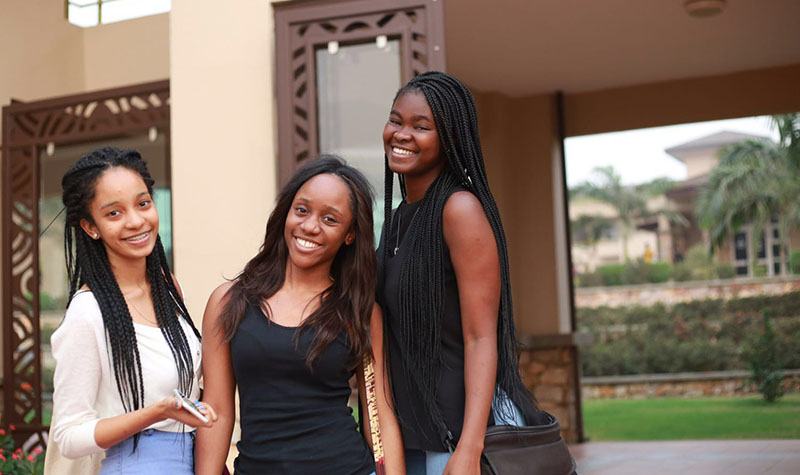
Over the past two years, Nadia has garnered a steady following in the Ghanaian entertainment industry, interviewing both the young and relatively unknown, to the big-name celebrities in Ghana. Her journey started with a casual meeting with a few members of Viasat1 through an acquaintance. An audition followed that meeting and since then, she has been charting her path to the limelight of Ghana’s entertainment scene. Though Nadia is quick to chip in that “there was never a plan to do television or entertainment for that matter.” Yet she seems to have been cut for the entertainment world.
At Morning Star Junior High School, Nadia was head of the cultural dance team. It was no different at Wesley Girl’s High School where she was an Entertainment prefect. And now at Ashesi, where Nadia is a MasterCard Scholar, she plays an active role in the entertainment scene on campus, as the Student Council’s Entertainment Chairperson. “I'm not attracted to entertainment; I'm attracted to talent and weirdness,” she says. “And since I find that in entertainment I feel like I can work with that.”
Nadia is not only an entertainer; she’s a dreamer. While in junior high school, Nadia struck a friendship with one of Ashesi’s bus drivers, while the university was in Labone. En route to Ashesi every morning, he would give her a ride to Morning Star and they would talk about life at Ashesi.This grew in her, a yearning to become a member of the Ashesi community. However, when she finally applied to Ashesi, she was waitlisted, so she ended up at University of Ghana’s Business School. During this period though, she still nurtured her five-year-old dream to attend Ashesi. The following year, when she applied again, she gained admission, promptly checking this goal off her bucket list.
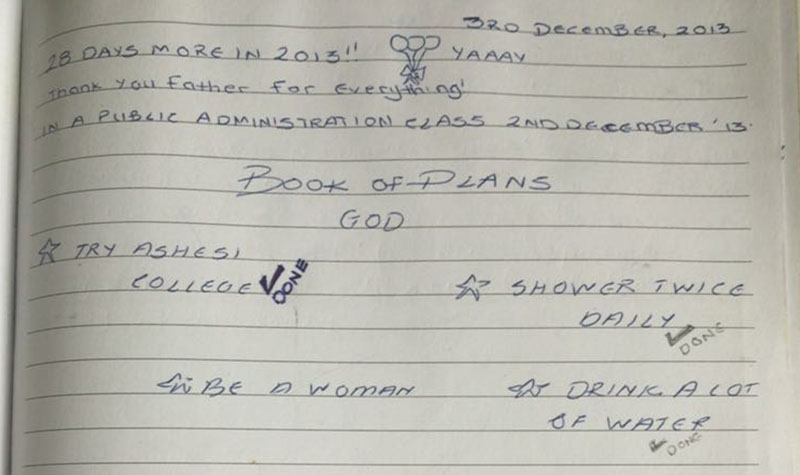
2016 has started on a high note for Nadia; Muse Africa has listed her as one of the up and coming stars in the industry. A list she shares with prominent names in the Ghanaian entertainment industry. Yet Nadia is already looking beyond just entertainment. “In a strange way, I think about uncommon things such as being a voice for relatively unknown people who are exceptionally good at exceptional things that people see as common," she says.
Nadia's passion to pursue her goals and embrace challenges is drawn from a strong family bond. After her father’s passing while she was in high school, Nadia’s relationship with her mother has calcified into one she draws inspiration from. "Nadia" is a Slavic word for hope, and this is also part of her muse. “Maybe, I’m the hope of Africa in the entertainment sector. Let me loose and I will do anything,” she laughs.
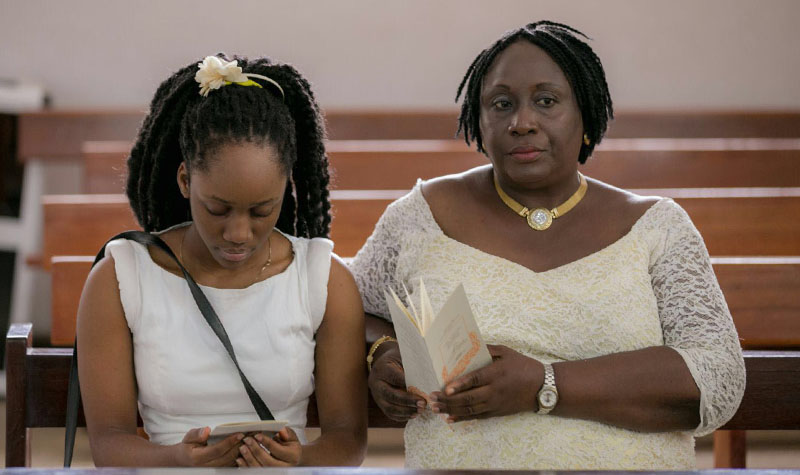




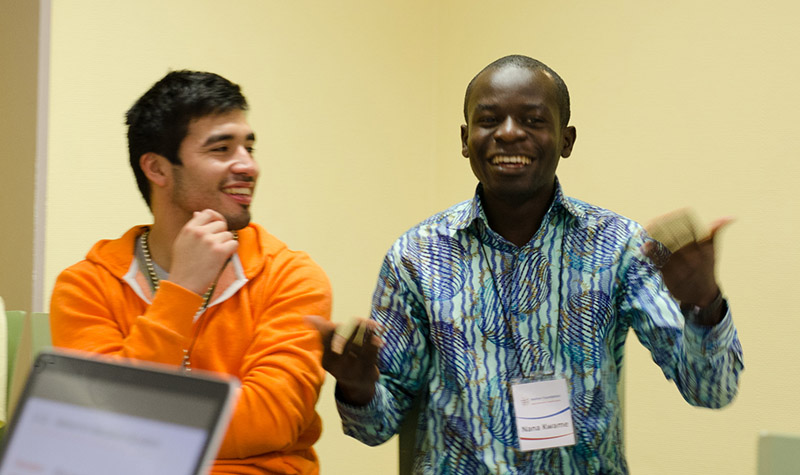
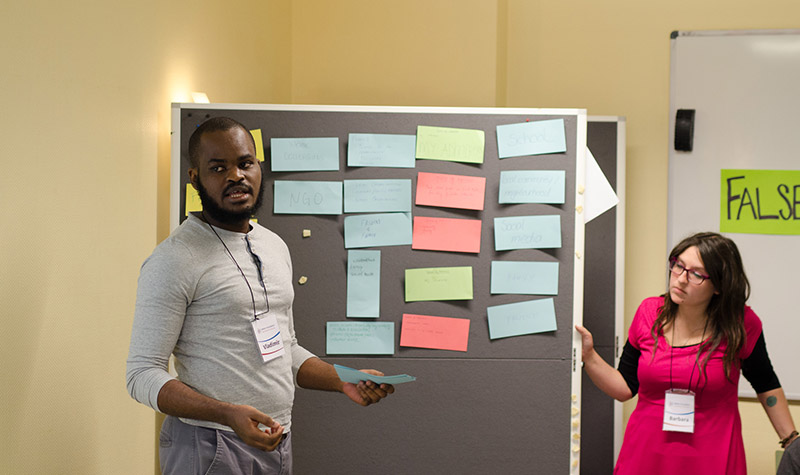
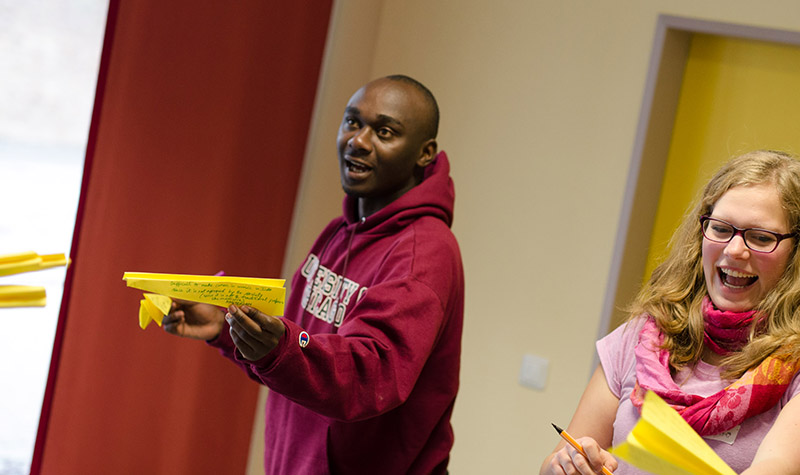
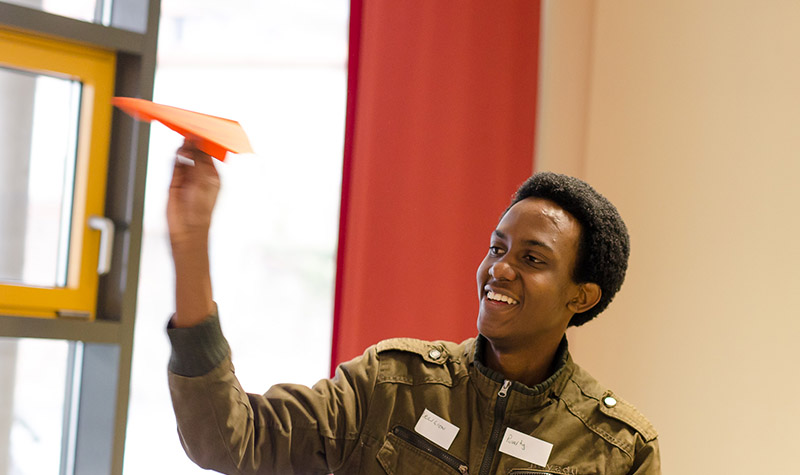
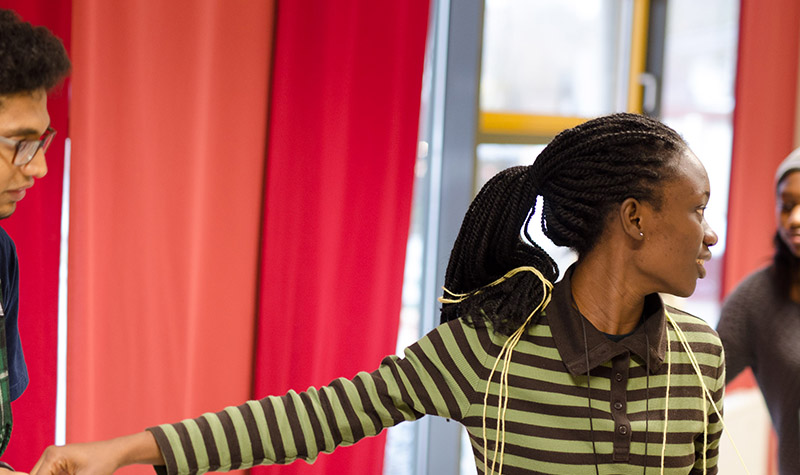

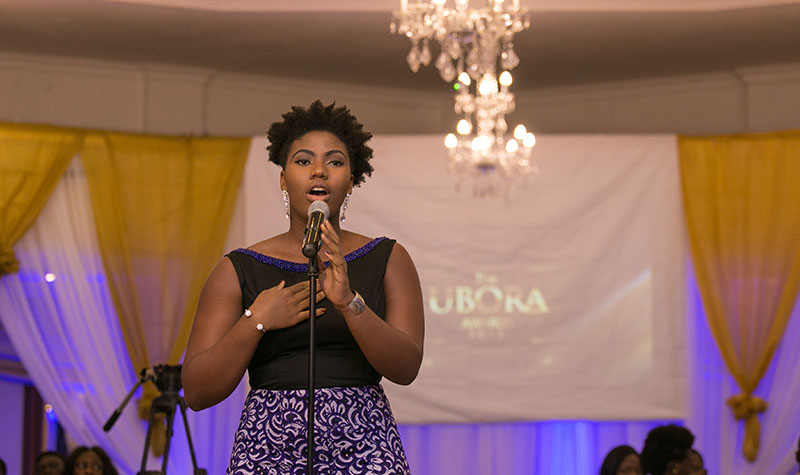


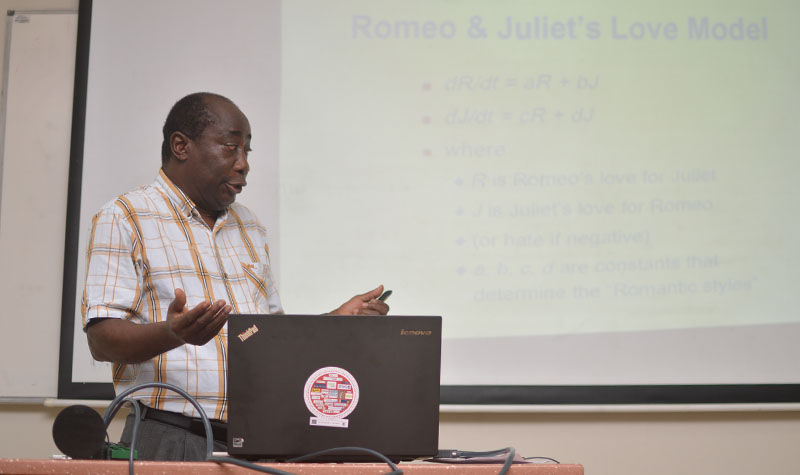
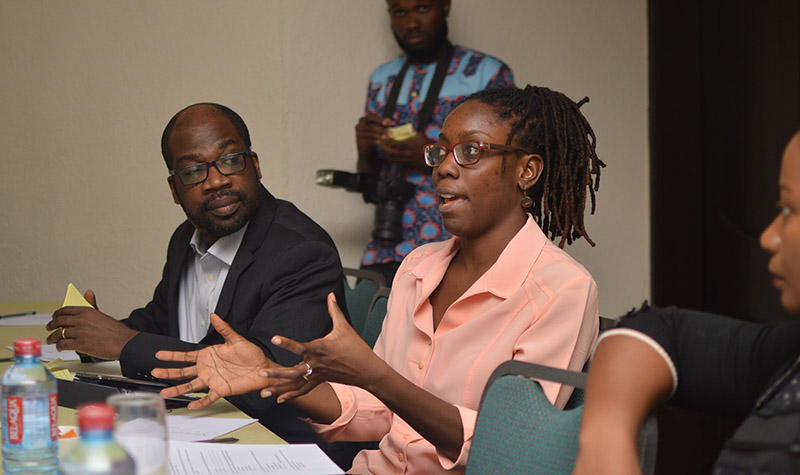
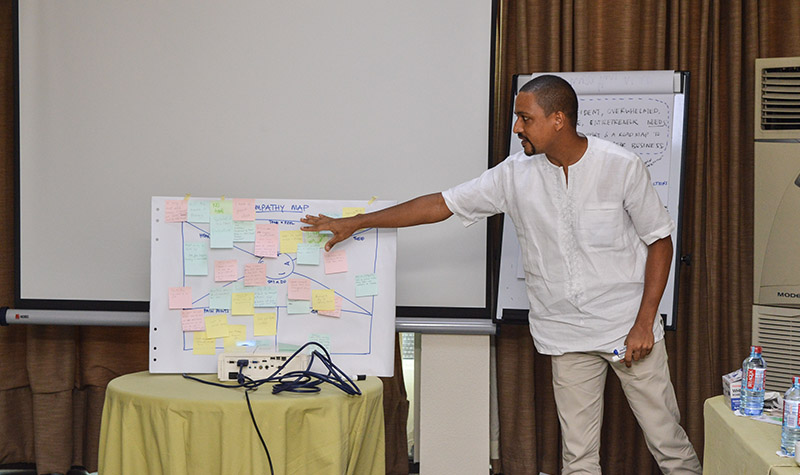 Ahead of the launch of the GCIC, the session also served as an opportunity to gauge the interests of the professionals with regards to the kind of technologies they expect to see come out from the GCIC.
Ahead of the launch of the GCIC, the session also served as an opportunity to gauge the interests of the professionals with regards to the kind of technologies they expect to see come out from the GCIC.